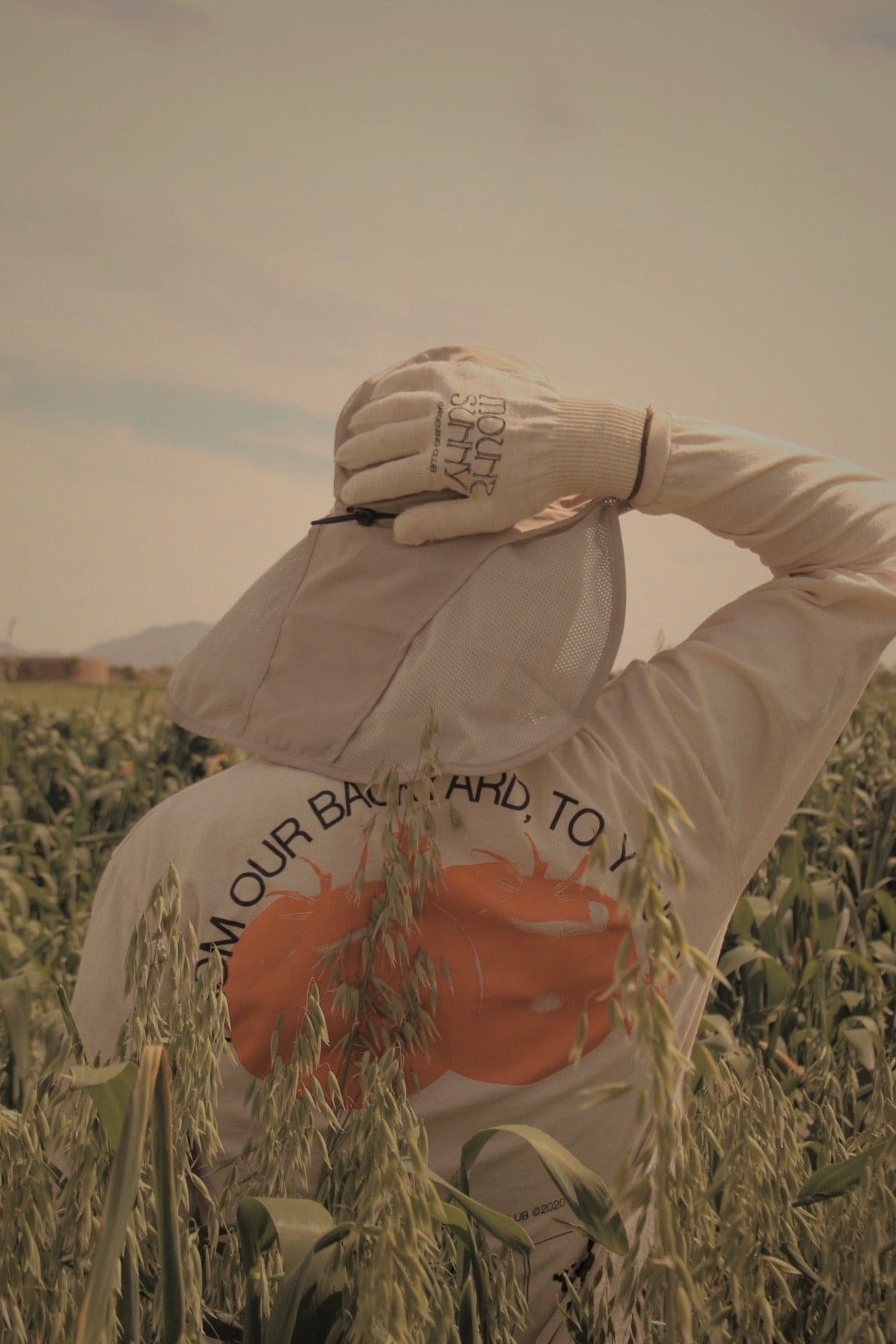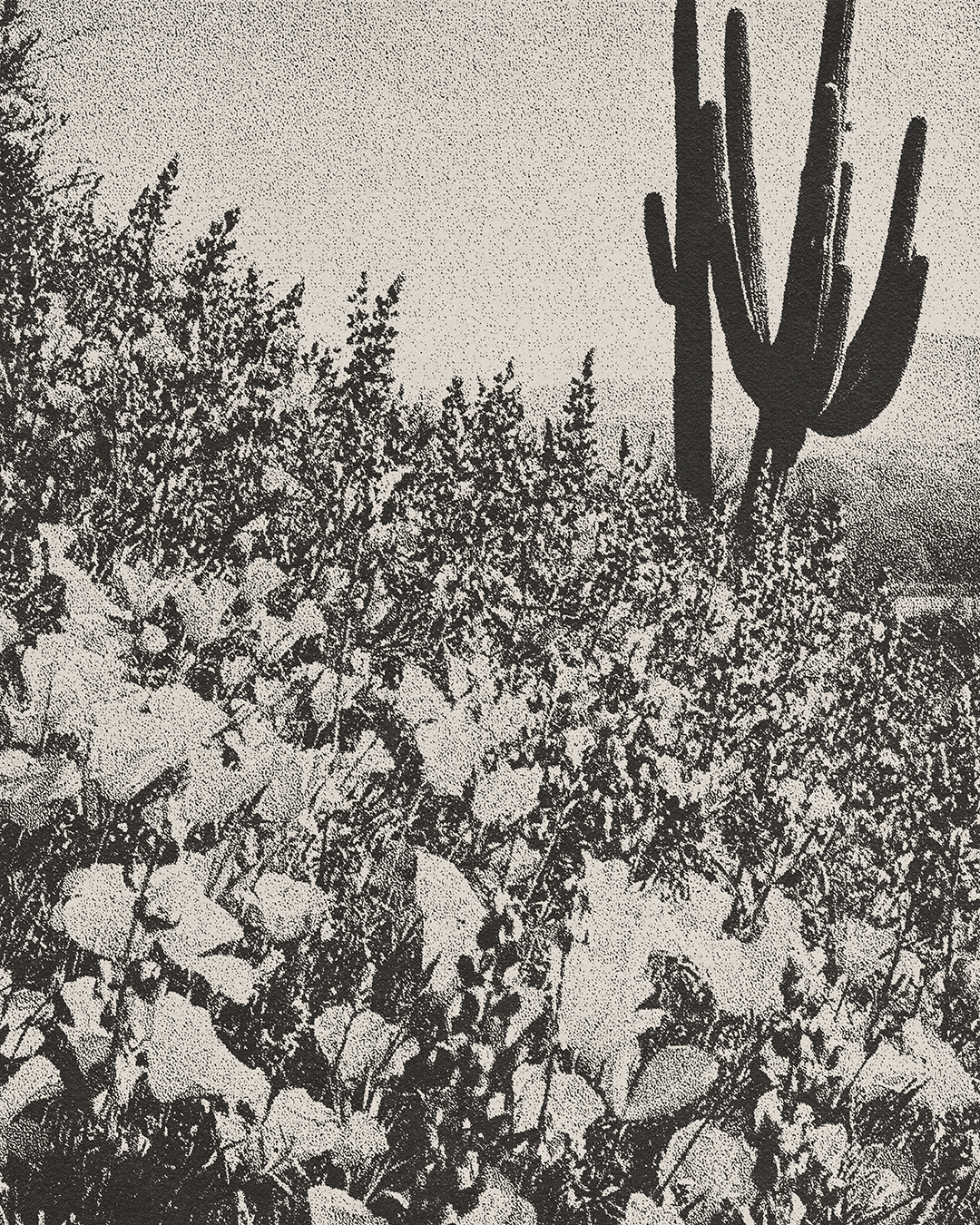

From our garden to yours...
"The garden is a ground plot for the mind," wrote Thomas Hill in his 1577 seminal book The Gardener's Labyrinth. Even almost five centuries later, his statement still rings true. The garden personifies the human's urge for control and nature's reluctance to cede it. It's through gardening that we must surrender our control and accept the world as it is. This acceptance allows us to engage with, and meditate with the elegance of existence. As we tend to the garden, we tend our mind.
The garden has long served as an image of change and growth, and the development of the garden served as an early marker of modern civilization. As hunter-gatherers, humans once had to leave their communities in search of food. Still, the invention of the garden allowed societies to develop and flourish by minimizing the need to journey out for sustenance. With the first seed pushed into the soil, humans established a feeling of permanence and control. And yet the garden would become a place to undo these feelings.
Letting go of control and accepting the present moment is the backbone of mindfulness. Gardening is, as such, the ideal embodiment of mindful practices. As the gardener tends to their garden, they are met with both the artistry of nature and its destructive essence. They may both exalt at the beauty of their plot and exclaim curses at the pests and weeds that have invaded. The gardener may reach for their pesticides or rip the weeds from the soil, and yet soon enough, they all return. Through this practice, we confront the impermanence of all. Neither beauty nor destruction can last. This dichotomy keeps the gardener humble, as Allen Lacy, the much-loved gardening columnist for the New York Times and Wall Street Journal, states in his book, Farther Afield. To truly grow a wondrous garden, one must give up control because, as the traditional Zen adage states, "you gather more flowers with an open hand than a closed fist."
Mindfulness has long been proven to have psychological benefits. Mindfulness has also served as the foundation for behavioral therapy techniques like MBCT, or Mindfulness Based Cognitive Therapy. MBCT focuses on the idea of decentering from thoughts and ideas. Decentering is the process of taking a non-judgmental stance regarding thoughts and ideas and accepting them wholeheartedly. Decentering, and MBCT, follows the idea of letting go of control. Gardening, and the relinquishing of control that comes with it, is a method of decentering. Because of this, gardening has been discussed as an effective component of mindfulness therapy.
While the positive effects of gardening have been understood for centuries, the academic discussion of gardening as a mental exercise and therapy option has been evolving for just the past few decades. The American Horticultural Therapy Association has cataloged much of the academic literature concerning horticultural therapy to provide a snapshot of the immense benefits of engaging with gardens for treatment. The AHTA extolls these benefits, which encompass cognitive, psychological, social, and physical effects.
A recent study published in the International Journal of Science and Research studied the impact of horticultural therapy on 21 corporate employees in India. Participants were subjected to a variety of physical and psychological assessments before engaging with gardening practices. These practices included traditional outdoor gardening as well as tree-hugging, leaf print, and flower arranging, among others. By the end of the study, assessments showed a marked decrease in anxiety and stress and an increase in self-esteem. These employees were more prepared to succeed in their work and their lives. The participants, who initially felt overworked, had low energy and were crippled by stress, left the study on the road to improved mental health.
A similar study was conducted with elderly participants and published in The Journal of Therapeutic Horticulture, Volume XIII. Participant ages ranged from 71 to 98 and engaged in a series of activities in two groups- one in an indoor setting and one in a garden setting. The results of the study found a significant decrease in cortisol levels in the garden participant group. Cortisol can affect everything from blood sugar levels, metabolism, and inflammation to memory formation. Even the brief exposure to gardening activities proved beneficial. One can only imagine the effects of a long term daily gardening practice on this group.
The University of Minnesota has conducted research on healing gardens as part of the broader research into holistic healing practices. The university bases it’s holistic healing research on the five categories laid out by the National Center for Complementary and Integrative Health (NCCIH). Gardening falls under category two- Mind-Body Interventions. Gardening acts as a way to connect deeper with nature, which has been proven to have significant benefits. One researcher in the field, Charles Lewis, noted that "Plants take away some of the anxiety and tension of the immediate now by showing us that there are long, enduring patterns in life." The recognition of these enduring patterns of life, as Lewis calls them, are a step towards understanding the interconnectedness of the world and our part within the whole.
"The soul cannot thrive in the absence of a garden"
- Sir Thomas More.
Sir Thomas More may have said it best. Our souls thrive when we enter the garden. It's why gardens have served as the symbol of birth and growth for centuries. With any holistic practice, we must treat all parts of our system. Gardening acts as an important tool to heal our minds which in turn can heal us physically. At Mount Sunny, we consider gardening to be an important part of a holistic wellness practice. Immersion into nature provides a deeper connection with the earth and ourselves. The garden is a place to practice mindfulness, connect with the earth, reduce our anxiety, and heal our bodies. As we tend to the garden, we tend our mind and heal ourselves.
More Reading
-

The Healing Environment: How Set and Setting Shape Healing
Explore how thoughtful surroundings and mental preparation create space for healing. Learn how environment shapes calm, focus, and deeper restoration.
-

Spring Renewal: Supporting Your Body's Natural Rhythm
Discover gentle ways to align with spring’s renewal. Learn how awareness and ritual can help your body move with the changing seasons.
-

Finding Balance: Gentle Approaches to Stress Relief
Understand how the body expresses stress and how to soften its effects. Simple practices and herbal allies support steadiness through daily life.



